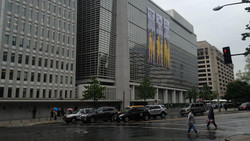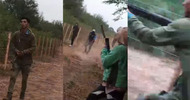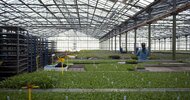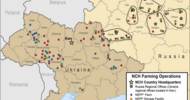Food Navigator | 5 August 2014
New World Bank rules will be disastrous for indigenous peoples
The World Bank has come under a barrage of criticism from rights groups, which allege its revised
rules for granting loans of up to US$50bn a year to developing countries will have disastrous consequences for indigenous peoples and the poor.
Last week, immediately after the revised draft of social and environmental safeguards of the Bank were leaked, 99 NGOs wrote a letter to the financing giant alleging that not only did it fail to include comprehensive provisions on land tenure but it also “failed to incorporate years of input from civil society and experts around the world”.
When pressed to address the criticism levelled against it by the NGO community, the financier’s spokesperson referred us to a press release , stressing that the proposed changes are just an “initial first draft“ and will be publicly consulted.
In the statement, a vice-president of the bank said that its environmental and social policies are key to ensuring that the projects it funds “benefit and protect the people and the environment”.
The safeguards in their current form, according to World Bank’s chief environmental and social standards officer, extend existing protections for indigenous peoples and strengthen the protection of biodiversity.
But as with most legal and semi-legal documents, the devil is in the detail.
Looking more closely, the safeguards do appear to grant protection to indigenous groups with one hand while taking them away with the other.
For example, although at first glance the draft provisions governing the protection of indigenous peoples remain unchanged—governments that borrow money from the bank must still obtain free, prior and informed consent from identified populations in within any project’s scope, or conduct an impact assessment of the project—they now also provide an opt-out clause on safeguards for this very group.
To be more specific, the ESS1 provision stipulates that “where identifying indigenous peoples would create a serious risk of exasperating ethnic tension or be inconsistent with the provisions of the national constitution… project impacts on indigenous peoples may be addressed through the application of [other standards].”
In this context, “other standards” could mean less stringent standards, giving a green light to government-orchestrated abuses perpetrated in the name of development, according to some rights experts.
This regressive clause, if adopted, “would represent a wink and nod by the World Bank to governments that they should not feel compelled to respect international human rights law,” NGOs asserted in the mass letter they sent to the institution.
However, the criticism does not end here.
What’s worse, as pointed out by David Predd, executive director of Inclusive Development International, a rights watchdog, the revised “safeguards have significantly weakened the social and environmental requirements for financial intermediaries.”
These changes, he claims, would allow private banks and equity funds to conduct their own classification of the projects they support with World Bank funds, and only the projects these private intermediary lenders deem to be “high risk” must comply with the Bank’s standards.
In fact, projects labelled as having “substantial” social and environmental risks would only need to comply with local regulations, which more often than not are extremely weak and remain largely unimplemented in most of the borrowing countries.
And there is more.
Inclusive Development’s Predd told FoodNavigator-Asia the new rules would render the Bank’s Inspection Panel—the body responsible for handling complaints over alleged adverse social and environmental impacts of the projects it funds—“impotent”.
“[This is] because it only has a mandate to investigate the bank's failure to comply with its policies, but under the new rules all responsibility for complying with the social and environmental standards has been transferred to borrowers, and even they are given unprecedented flexibility in doing so.”
So what do these proposed changes actually mean for indigenous peoples, whose identity and sheer existence are intrinsically linked to their ancestral lands?
Next time the governments of Indonesia or Cambodia want to raze lands inhabited by the indigenous groups to the ground before turning them into a palm oil plantation, they won’t even have to consult the affected communities before forcing them off the land—a worrying trend already visible today in both countries.
These changes will also make it much easier for the World Bank to delegate its responsibility for ensuring that the projects it funds do not lead to land grabs and other rights abuses.
Perhaps most importantly, they will also deprive the affected communities of a means to seek recourse for the infringement of their rights and to hold the World Bank accountable.
One can only hope the Bank will now take these concern into account and amend its rules to ensure the projects it funds really benefit those whose interest it claims to have at heart.













